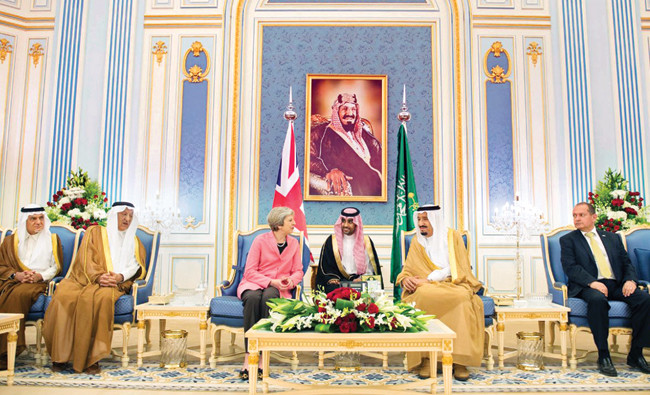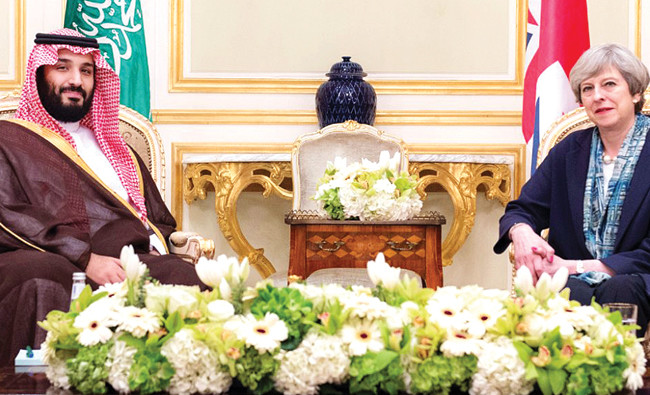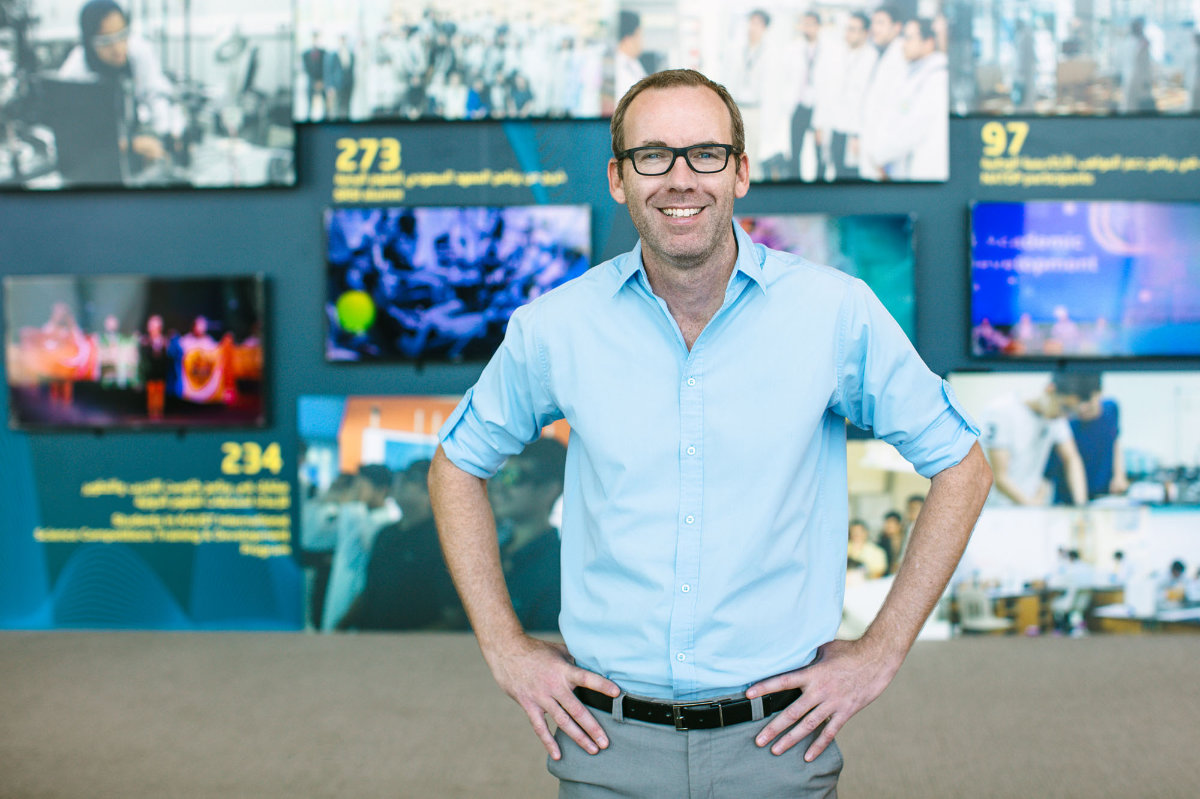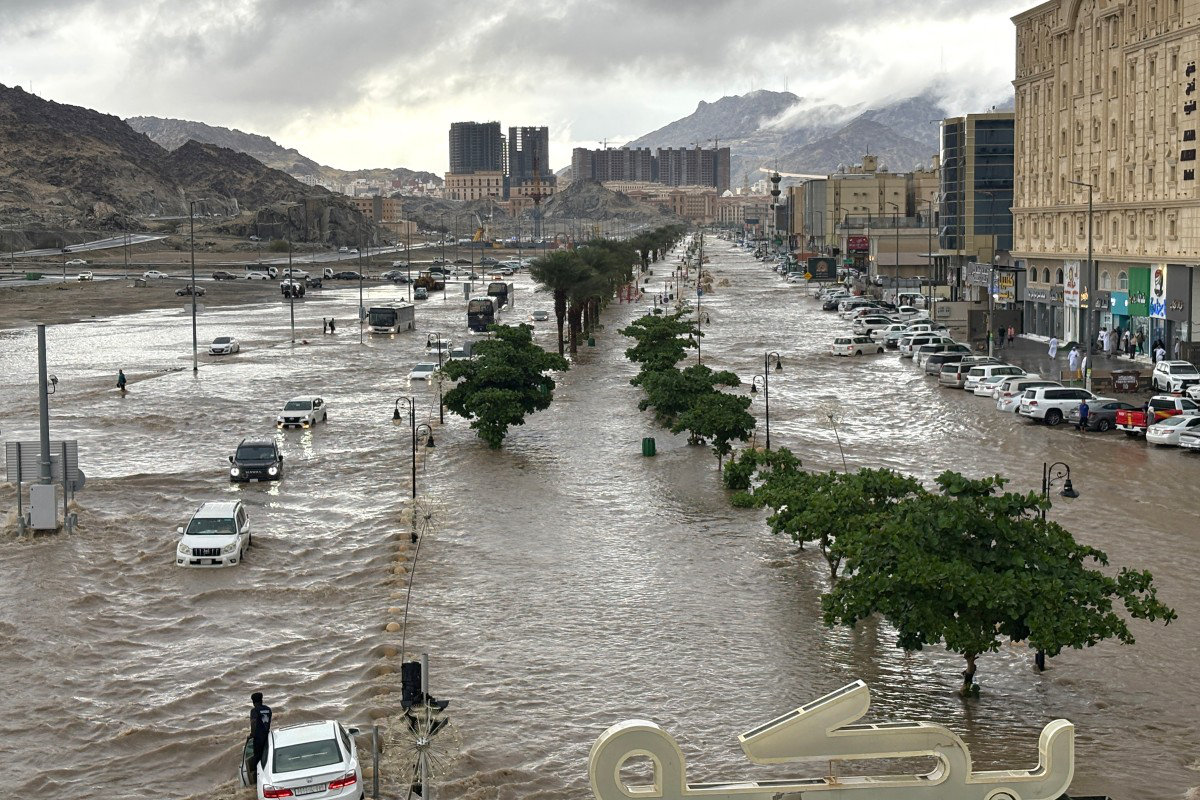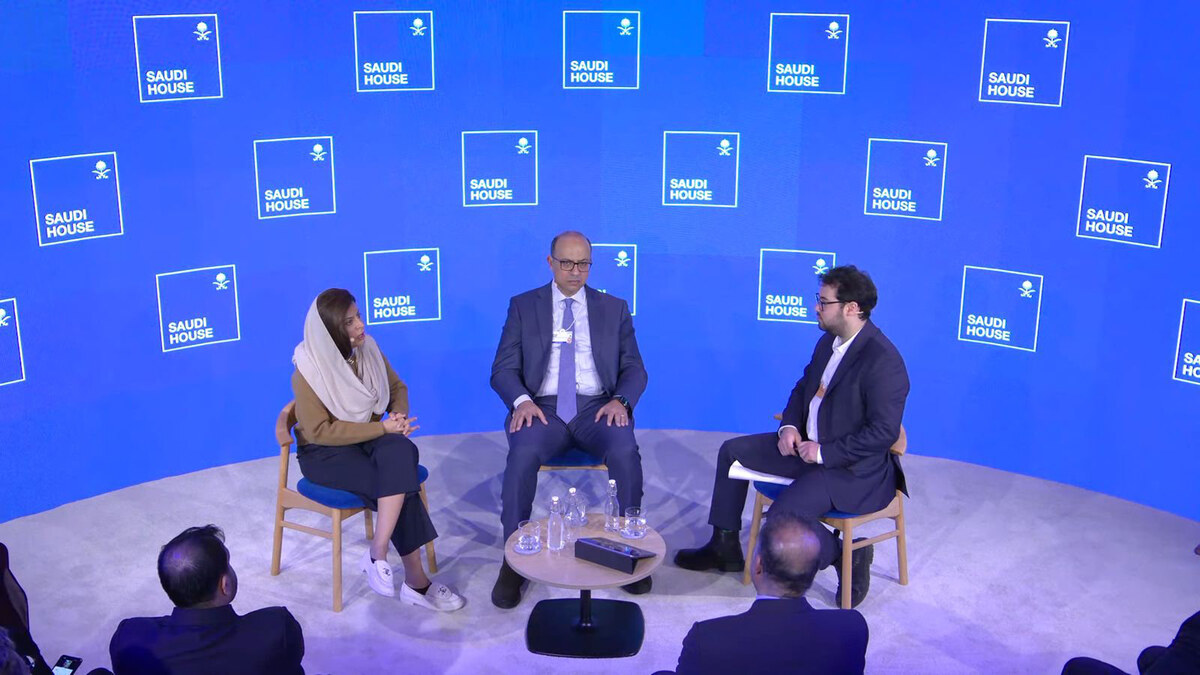RIYADH: Britain said Wednesday it would help Saudi Arabia to diversify its oil-dependent economy as British Prime Minister Theresa May visited the Kingdom.
A statement from May’s office said the two discussed several issues including security and strengthening business ties.
An earlier statement from May’s office said she would discuss with the monarch “tax and privatization standards to help Saudi Arabia diversify its economy and become less reliant on oil.”
The prime minister “pointed out that security relationships between the two countries had saved many lives in the UK,” her office said.
Britain will also assist Riyadh in “building a reformed Ministry of Defense” and reviewing defense capabilities, the premier’s office said.
May’s visit came as she seeks to secure investment and trade after Britain officially started a two-year countdown to leave the EU.
May and the chief of the London Stock Exchange (LSE) pitched investments in Britain to the head of Saudi Arabia’s sovereign wealth fund.
May and Xavier Rolet presented Yasir Al-Rumayyan of the Saudi Public Investment Fund (PIF) with a “high-level overview of investment opportunities,” according to a spokesman for the prime minister’s office.
The LSE and other top stock exchanges are trying to win a slice of state oil company Saudi Aramco’s initial public offering, expected to be the world’s biggest.
Saudi Arabia plans to transfer Aramco’s shares into the PIF before listing up to 5 percent of the company, making the fund a key player in talks with the exchanges.
The IPO, expected in 2018, could be worth around $100 billion, Saudi officials have said, and will likely involve multiple exchanges.
The PIF is also expanding its profile with major investments abroad, including a pledge of up to $45 billion for the Vision Fund, a global technology fund it is creating with Japan’s SoftBank.
Saudi officials said last year they expect the PIF to expand from $160 billion to about $2 trillion after the Aramco share transfer, which would make it the world’s largest sovereign fund.
The PIF has not yet made any direct investments in British firms, but SoftBank is weighing plans to place its $8 billion stake in British chip designer ARM into the Vision Fund.
Before leaving for home, May said Britain was a firm supporter of Saudi Arabia’s “Vision 2030” which she described as an ambitious reform plan.
“As a world leader across a range of sectors, the UK is well placed to help Saudi Arabia deliver these vital reforms,” she said, according to a statement from her office.
The statement said that senior Cabinet members including Chancellor Philip Hammond, Secretary of State for International Trade Liam Fox and Foreign Secretary Boris Johnson were expected to visit the Kingdom in coming months.
The Permanent Secretary at the Ministry of Defense, Stephen Lovegrove, will also visit the Kingdom next month for discussions on Saudi defense reform, which Britain has pledged to assist, it said.
May’s office said she and King Salman “discussed working together to address the humanitarian situation in Yemen.”
On Tuesday, May held talks with a string of officials including Saudi Crown Prince Mohammed bin Naif and Deputy Crown Prince Mohammed bin Salman.
May also met with Saudi women leaders before wrapping up her two-day visit.
She met with Princess Reema bint Bandar, vice president for women’s affairs at the General Sports Authority.
They discussed bilateral cooperation to enhance and develop social sports culture and the economic output that could be yielded as a result.
Ahead of the meeting, May said on Monday she would announce that the UK will provide support to Saudi Arabia to increase opportunities for men and women to participate in sport.
She also met with the CEO of the Saudi stock exchange, Sarah Al-Suhaimi, and discussed women’s role in the private sector.
The British Council’s Contemporary Collective program will train young Saudi women in arts management, equipping them with the skills necessary to launch and run largescale cultural projects in the Kingdom.
— An earlier version of this article included a AFP photo in which the businesswoman sitting with UK Prime Minister Theresa May was misidentified by AFP news agency. The woman with Theresa May is actually Rania Nashar, CEO of Samba Financial Group, and NOT Sarah Al-Suhaimi, who is CEO of NCB Capital and the chairperson of the Board of Directors of the Saudi Stock Exchange.


